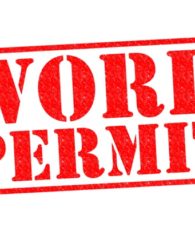WHY YOU NEED A NON DISCLOSURE AGREEMENT.
Ideas rule the world and most entrepreneurs have probably been faced with the fear of losing their business idea to potential investors/ partners. It’s in situations like these that a confidentiality agreement otherwise known as a Non-Disclosure Agreement (NDA) becomes applicable. Simply speaking it’s a contract that creates a legal obligation to privacy and compels parties to the agreement to keep any specified information top-secret or secured.
NDAs are the first steps towards a commercial relationship and are fairly common in many business settings, as they offer one of the best ways to protect trade secrets and other confidential information relating to a transaction. Information commonly protected by NDAs might include manufacturing process for a new product, client information, sales and marketing plans etc.
Basic Elements of an NDA
- Definitions of Confidential Information- This part of the agreement expressly spells out the categories or types of information to be secured. It’s important to clearly spell out this portion so as to ensure that there is no confusion on what exactly you need to protect e.g. an NDA for a software might include a statement such as this: ‘Confidential information includes programming codes, utilities and applications. In most cases, NDA’s also exclude some information from protection which are comprised of information already considered common knowledge or data collected before the agreement was signed.
- Prohibition of Unauthorized Use-The NDA must also explicitly spell out that the person receiving the information is to keep it secret and limit its use. This clause is very important as it prohibits the unauthorized use of the pre-defined information, it must also clearly state that you can’t breach the agreement, encourage others to breach it, or allow others to access the confidential information through improper or unconventional methods. It’s also important to note that if a Company signs an NDA, it’s liable for the unauthorized breach by a member of its staff as this is usually part of the agreement.
- Time spans are also an important feature of an NDA, i.e. the agreement mandates the parties to secure the information for a particular number of years which is usually negotiated by the parties.
Breach of an NDA….What Next?
Some NDAs clearly spell out penalties for default which is usually the payment of a particular amount in the event of a breach but in most cases remedies may only be enforced through a Court action. Its however important to note that the mere fact that you sign an NDA puts the other party in check and mostly unwilling to circumvent you or misuse the information knowing the consequences of such a breach.
If you have an NDA with someone who uses your secret without authorization, you can ask that a court order the violator from making any further disclosures, you can also sue the violator for damages.
[fc id=’1′ type=’popup’ button_color=’#4488ee’ font_color=’white’]CONTACT US[/fc]





